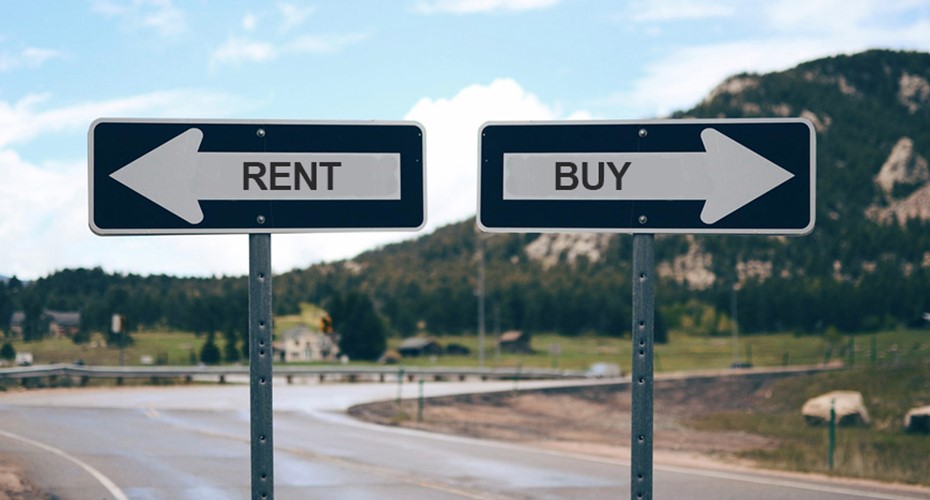Rent or buy? A perplexing question

If you were to judge this question purely based on what you read in the media then the answer would always come down to the financial decision.
Is it cheaper to buy rent than to buy?
However weighing up the decision as to continuing to rent a property or take that bold step to buying a property should have more consideration to the personal circumstances than the purely monetary facts. It is best at the outset to set aside the financial calculation to an exercise undertaken through a smart calculator, like the one I recently found hosted on the New York Times website - called The Upshot. This web app has complied the various financial factors that directly impinge on the decision and allows you to personalise these factors, most critical of which is the budget for the proposed property purchase and thereby evaluate at what level it would be cheaper to rent than to buy. The app is naturally US based but it is very easy to apply NZ numbers to the various factors. In evaluating and reviewing this app I was struck by one of the first variables - the likely duration that you plan to stay in a property. This factor does play such a key part in not only the financial evaluation of renting vs buying but also is probably what I would see as a key personal consideration. This fact about the duration of occupancy is something very peculiar to this country or so it seems according to a 2013 Gallup survey. It found that over 1 in 4 New Zealanders reported moving within the country in the past 5 years, placing NZ at the top of the rankings ahead of places like the USA (24%), Finland (23%) and Norway (22%). We appear to be by nature, a people for whom moving around the country is common place and maybe speaks to a sense of a property being related to a life-stage rather than for life. Other facts that spring to mind in evaluating the decision as to buying or renting are related to your attitude to maintenance and the sense of ‘making a place your own’ and allied to that the sense of ‘putting down roots’. These emotional and practical factors are as important decision factors as the financial ability to buy a home.
Many people these days don’t want the hassle and distraction of property maintenance as the urban lifestyle provides a rich and varied collection of activities to occupy the spare time. Of course low or zero maintenance can be achieved through property ownership, especially as we see more urban intensification, however that sense of ‘putting down roots’ is a very important emotional decision. Adding value and improving a property to thereby see it as part of a financial security is often quoted as the driving imperative to home-ownership although this approach needs to be seen for the scale of the work required, and I am not just talking about the workload of a renovation, I am referring to everyday tasks and jobs that need to the done to achieve that value add.
The underlying trend of property appreciation is one component to the potential of adding value to a property, the other is the extent of your own investment in time and money. It should always be noted that there is never certainty that property will inherently rise in value. History shows periods when house prices fell or at least failed to keep up with the general level of inflation. It is true that over certain periods of time property prices have doubled over 10 years, but which 10 years and is the next 10 years going to be one of them?
Whilst the decisions around renting vs selling may well relate to the emotional factors around your life-stage, there is no doubt that one of the key factors heavily weighing against renting is security. The current tenancy rights really provide very little security of tenure which means that your landlord could notify you of the need to vacate the premises with as little as 3 months notice for a periodic tenancy. Even with a fixed term tenancy the concern always arises as the end of the period approaches. This is a worry for many people and creates this sense of a transitory state. In my view it is kept in place to suit the needs of landlords as property investors allowing them to effectively trade properties with little genuine consideration to the tenants.
It is without doubt hard to ‘put down roots’ when you may need to pack up and move in a couple of months. So when it comes to that decision as to renting or buying there are many factors to consider, as ever some relate to emotional decisions whereas some are more rational decisions. In my view the very first question should always be - where do we want to live? Then importantly how do we want to live? Having made these decisions in a considered and rational manner; then and only then, you should look to see if you are able to afford to buy a property based on indicative prices in an area and with all of this insight it is then time to weigh up the relative costs and benefits of renting vs buying.
Receive updates on the housing market, interest rates and the economy. No spam, we promise.
The opinions expressed in this article should not be taken as financial advice, or a recommendation of any financial product. Squirrel shall not be liable or responsible for any information, omissions, or errors present. Any commentary provided are the personal views of the author and are not necessarily representative of the views and opinions of Squirrel. We recommend seeking professional investment and/or mortgage advice before taking any action.
To view our disclosure statements and other legal information, please visit our Legal Agreements page here.

